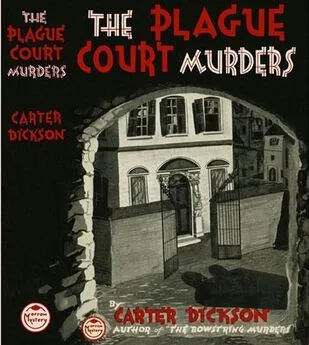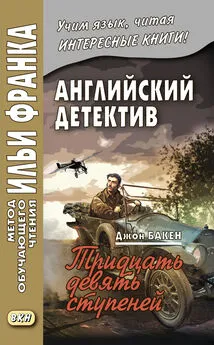John Blaine - The Boy Scouts In Russia
- Название:The Boy Scouts In Russia
- Автор:
- Жанр:
- Издательство:неизвестно
- Год:неизвестен
- ISBN:нет данных
- Рейтинг:
- Избранное:Добавить в избранное
-
Отзывы:
-
Ваша оценка:
John Blaine - The Boy Scouts In Russia краткое содержание
The Boy Scouts In Russia - читать онлайн бесплатно полную версию (весь текст целиком)
Интервал:
Закладка:
"The lieutenant will see you inside," he said, gravely.
Fred followed him. Ernst, his face sober, but with shining eyes, spoke to him at once.
"War has been declared," he said. "War between Germany and Russia! My young friend, you are in hard luck! The train from which you were expelled is the last that will even start for Berlin until the mobilization is complete."
Outside there was a sudden rattle of rifle fire. Fred stared at the German officer.
"That is the beginning," he said. "We happen to have the stronger force here. We are taking possession of the Russian side of the border station! I wish we might catch Suvaroff-he is a good soldier, that one at least, and worth a division to the Russians. But there'll be no such luck. He'll have got away, of course-a fast motor, or some such way. And they've got more troops close up than we have."
And still Fred stared. He seemed unable to realize that this popping of rifles, this calm, undemonstrative series of statements by an unexcited German officer, meant that war had come at last-the European war of which people even in America had talked for years as sure to come!
"As for you, I meant, of course, to lend you the money and let you go on to Berlin," said Ernst. "Now I can lend you the money, but there will be no trains. You can't stay here. The Russians, I think, will advance very quickly, and it will not be here that we shall try to stop them, but further back and among the lakes to the south. Even if there is a concentration, however, foreigners will not be wanted."
"What shall I do?" asked Fred.
"You speak German?"
"Yes."
"Then I shall lend you some money-what I can spare. You can start back toward Koenigsberg and Danzig. Your consul will be able to help you. You can walk and the people will gladly sell you food."
"Yes, and thank you for the chance, I'm a Boy Scout; I won't mind a hike at all." CHAPTER II
UNDER ARREST
So it was arranged for Fred Waring, thousands of miles from home, to start from Virballen. The lieutenant who had saved him from Suvaroff lent him what money he could spare, though all told it was less than a hundred marks, which is twenty dollars.
"Good-bye, and good luck go with you," said Ernst. "If we do not meet again it will be a real good-bye. If you can send the money back, let it go to my mother in Danzig. If you cannot, do not let it worry you! If any people ask you questions, answer them quickly. If any tell you to stop, stop! Remember that this is war time and every stranger is suspected. You will be in no danger if you will remember to answer questions and obey orders."
"Thank you again-and good-bye," said Fred. He had known this German officer for only a few minutes, but he felt that he was parting from a good friend, and, indeed, he was. Not many men would have been so considerate and so kindly, especially at such a time, to a strange boy from a foreign land, and one, moreover, who had certainly not come with the best of recommendations. "I-I hope you'll come through all right."
"That's to be seen," said Ernst, with a shrug of the shoulders. "In war who can tell? We take our chances, we who live by the sword. If a Russian is to get me, he will do so, and it will not help to be afraid, or to think of the chances that I may not see the end of what has been begun to-night! We have been getting ready for years. Now we shall know before long if we have done enough. The test has come for us of the fatherland."
And then Fred said a bold thing.
"I can wish you good luck and a safe return, Lieutenant," he said. "But I can't wish that your country may be victorious because my mother, after all, was a Russian."
"I wouldn't ask that of you," said Ernst, with a laugh. "Even though it is Prince Suvaroff's country, too?"
"There are Germans you do not like, I suppose-who are even your enemies," said Fred. "Yet now you will forget all that, will you not?"
"God helping us, yes!" said Ernst. "You are right. Your heart must be with your own. But you don't seem like a Russian, or I would not be helping you."
Then Fred was off, going on his way into the darkness alone. Ernst had told him which road to follow, telling him that if he stuck to it he would not be likely to run into any troop movements.
"Don't see too much. That is a good rule for one who is in a country at war," he had advised. "If you know nothing, you cannot tell the enemy anything useful, and there will be less reason for our people to make trouble for you. Your only real danger lies in being taken for a spy. And if you are careful not to learn things, that will not be a very great one."
Fred was not at all afraid, as a matter of fact, as he set out. Before he had stepped across the mark that stood for the border he had been hugely depressed. He had been friendless and alone. He had been worse than friendless, indeed, since the only man for many miles about who knew him was his bitter enemy. Now he had found that he could still inspire a man like Ernst with belief in his truthfulness and honesty, and the knowledge did him a lot of good. And then, of course, he had another excellent reason for not being afraid. He was entirely ignorant of the particular dangers that were ahead of him. He had no conception at all of what lay before him, and it does not require bravery not to fear a danger the very existence of which one is entirely without knowledge.
The idea of walking all through the summer night, as Ernst had advised him to do, did not seem bad to him at all. As a scout at home, he had taken part in many a hike, and if few of them had been at night, he was still thoroughly accustomed to being out-of-doors, without even the shelter of a tent or a lean-to. Nor was he afraid of losing his way, for as long as the stars shone above, as they did brilliantly now, he had a sure guide.
Fred wasn't tired, for he had enraged Suvaroff, who had seemingly wanted him to be frightened, by sleeping during the journey to Virballen whenever he could. It had been comfortable enough on the train; he had not been treated as a prisoner, but as a guest. And he had, as a matter of fact, been aroused only an hour before the train had reached the frontier.
So he had been able to start out boldly and confidently. In the country through which he was now tramping the nights are cool in summer, but the days are very hot. So Fred had made up his mind, as soon as he understood that he had a good deal of walking before him, to do as much of his traveling as was possible by night, and to sleep during the day. In East Prussia, as in some parts of Canada, the summer is short and hot; the winter long and cold.
There was nothing about the silent countryside, as he tramped along an excellent road, to make him think of war. The fields about him seemed to be planted less with grain; they were very largely used for pasture, and he saw a good many horses. He remembered now that this was the great horse breeding district of Germany. Here there were great estates with many acres of rolling land on which great numbers of horses were bred. It was here, he knew, that the German army, needing great numbers of horses every year, found its mounts.
"They'll need more than ever now," he thought to himself. "If there's really to be war, I suppose they'll take every horse that's able to work at all, whether it's a good looking beast or not. Poor horses! They don't have much chance, I guess."
He thought of the Cossacks he had seen in Russia, wiry, small men, in the main, mounted on shaggy, strong, little horses, no bigger in reality than ponies. He had heard of the prowess of the Cossacks, of course. They had fought well in the past in a good many wars. But somehow it seemed rather absurd to match them, with their undersized horses, against magnificent specimens of men and horseflesh such as the German cavalry. He had passed a squadron of Uhlans, near Virballen, outlined against the sky. They had been grim and business-like in appearance. But then the Cossacks were that, too, though in an entirely different way.
"I wish I had someone along!" he thought, at last.
That was when the dawn was beginning to break. Off to the east the sun was beginning to rise, and in the grey half light before full day there was something stark and gaunt about the country. Before him smoke was rising, probably from a village. But that sign of human habitation, that certain indication that people were near, somehow only made him feel lonelier than he had been in the starlit darkness of the night. This would be good enough fun, if only one of his many friends back home were along-Jack French, or Steve Vedder. It was with them that he had shared such adventures in the past. And yet not just such adventures, either. This was more real than anything his adventures as a Boy Scout had brought him, though he belonged to a patrol that got in a lot of outdoor work, and that camped out every summer in a practical way.
Being alone took some of the zest out of what had seemed, once Lieutenant Ernst's loan had saved him from his most pressing worry, likely to be a bully adventure. Now it seemed rather flat and stale. But that was partly because having tramped all night, he was really beginning to be tired. So he went on to the village, and there he found a little inn, where he got a good breakfast and a bed, in which, as soon as he had eaten his meal, he was sound asleep.
Few men were about the village when he went in. He had noticed, however, the curious little throng, early as it was, about a bulletin ominously headed, "Kriegzustand!" That meant mobilization and war. The men had answered the call already, all except those who were too old to spring to arms at once. Some of the older ones, he knew, would be called out, too, for garrison duty, so that younger men might go to the front.
In his sleep he had many dreams, but the most insistent one was made up of the tramp of heavy feet and the blowing of bugles and the rattling of horses' feet. And this wasn't a dream at all, for when he awoke it was to find a soldier shaking him roughly by the shoulders, and ordering him to get up. And outside were all the sounds of his dream. The sun was high for he had been asleep for several hours. So he got up willingly enough, and hurried his dressing because he remembered what Ernst had told him. Then he followed the soldier downstairs, and found himself the prisoner in an impromptu sort of court-martial.
Really, it wasn't as bad as that. Considering that he had no passports and nothing, in fact, to show who he was, and that no responsible person could vouch for him, he was very lucky. It was because he was a boy, and obviously an American boy, that he got off so easily. For after he had answered a few questions, a major explained the situation to him very punctiliously.
"You must be detained here for two or three days," said the major. "This is an important concentration district, and many things will happen that no foreigner can be allowed to see. We believe absolutely that you are not unfriendly, and that you have no intention of reporting anything you might chance to learn to an enemy. But in time of war we may not take any risks, and you will, therefore, be required to remain in this village under observation.
"Within the village limits you will be as free as if you were at home, in your own country. You will not be allowed to pass them, however, and if you try to do so a sentry will shoot you. As soon as certain movements are completed, you will be at liberty to pass on, on your way to Koenigsberg. I will add to Lieutenant Ernst's advice. When you reach Koenigsberg, after you have reported yourself to the police, wait there until a train can take you to Berlin. It will mean only a few days of waiting, for at Koenigsberg there are already many refugees, and the authorities want to get them to Berlin as soon as the movements of troop trains allow the railway to be reopened for passenger traffic."
Читать дальшеИнтервал:
Закладка:










